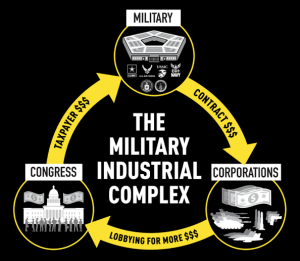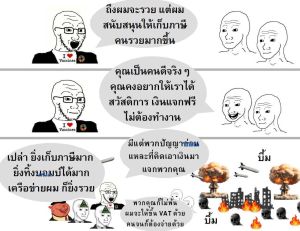Military-Industrial Complex
War-Based Finance: The Pursuit of Power and the Toll on Society
Throughout history, certain nations have built their foundations on the backbone of military might. Among them, the United States stands out as a nation that was conceived, grew, and has sustained its global influence largely through its military endeavors. This article explores the implications of prioritizing military expenditure at the expense of public welfare, the influence of economic powerhouses like Texas, and the broader consequences of such war-based finance.
The American Military-Industrial Complex
The United States has consistently channeled a significant portion of its budget into defense. This practice dates back to its earliest days, when the nation's survival often hinged on its ability to wage and win wars. Over time, however, this military emphasis has become less about survival and more about maintaining global dominance. The U.S. has positioned itself as a world leader, often engaging in conflicts not solely for defense, but to assert its power and influence across the globe.
This relentless focus on military strength is fueled by the desire of certain political elites to be remembered as world leaders who shaped the global order. The pursuit of being recognized as a "superpower" or "world leader" has driven the U.S. government to allocate vast sums of taxpayer money to defense, often at the expense of social programs and infrastructure development.
Texas: The Economic Engine Behind Military Might
One of the key players in this dynamic is the state of Texas. Texas boasts one of the largest economies within the U.S., rivaling entire countries in terms of GDP. It is a significant contributor to the federal budget, thanks in large part to its booming industries, which include oil, technology, and manufacturing. This economic prowess translates into substantial tax revenue, which the federal government, in turn, channels into various areas, including the military.
Texas's economic clout is so substantial that it has long harbored a sense of independence, with some factions within the state even advocating for secession. However, the federal government has a vested interest in keeping Texas within the union—not just because of its symbolic value, but because of the economic engine it represents. The state's contributions to federal revenue are a critical component of the U.S.'s ability to maintain its military and, by extension, its global standing.
The Cost of Military Expenditure
The prioritization of military spending over other forms of public expenditure has profound consequences. Infrastructure, healthcare, education, and social services often suffer as defense budgets swell. The justification often given is that a strong military is essential for national security. Yet, this emphasis on defense spending can create a cycle where other vital areas are neglected, leading to long-term societal issues.
Moreover, this focus on military might reflects a deeper issue: the conflation of national power with military power. The idea that a country is only as strong as its military is deeply ingrained in the American psyche, but it ignores the importance of other forms of strength, such as economic stability, social cohesion, and innovation.
Guess that's what the costs of being the World Police...
Conclusion
War-based finance, as exemplified by the U.S., is a double-edged sword. On one hand, it ensures that the nation remains a formidable global force. On the other, it often comes at the expense of the very people it is meant to protect. By continuing to prioritize military spending over public welfare, the U.S. risks not only its own social stability but also its long-term global standing. True leadership, after all, is not just about military might but about fostering a society that thrives in all aspects of life.
In the end, the question remains: Is the pursuit of global dominance worth the cost to society? As history has shown, empires that prioritize war over the welfare of their citizens often find themselves weakened from within. The challenge for the U.S. moving forward will be to balance its military ambitions with the needs of its people, ensuring that it remains not just a powerful nation, but a prosperous one as well.


